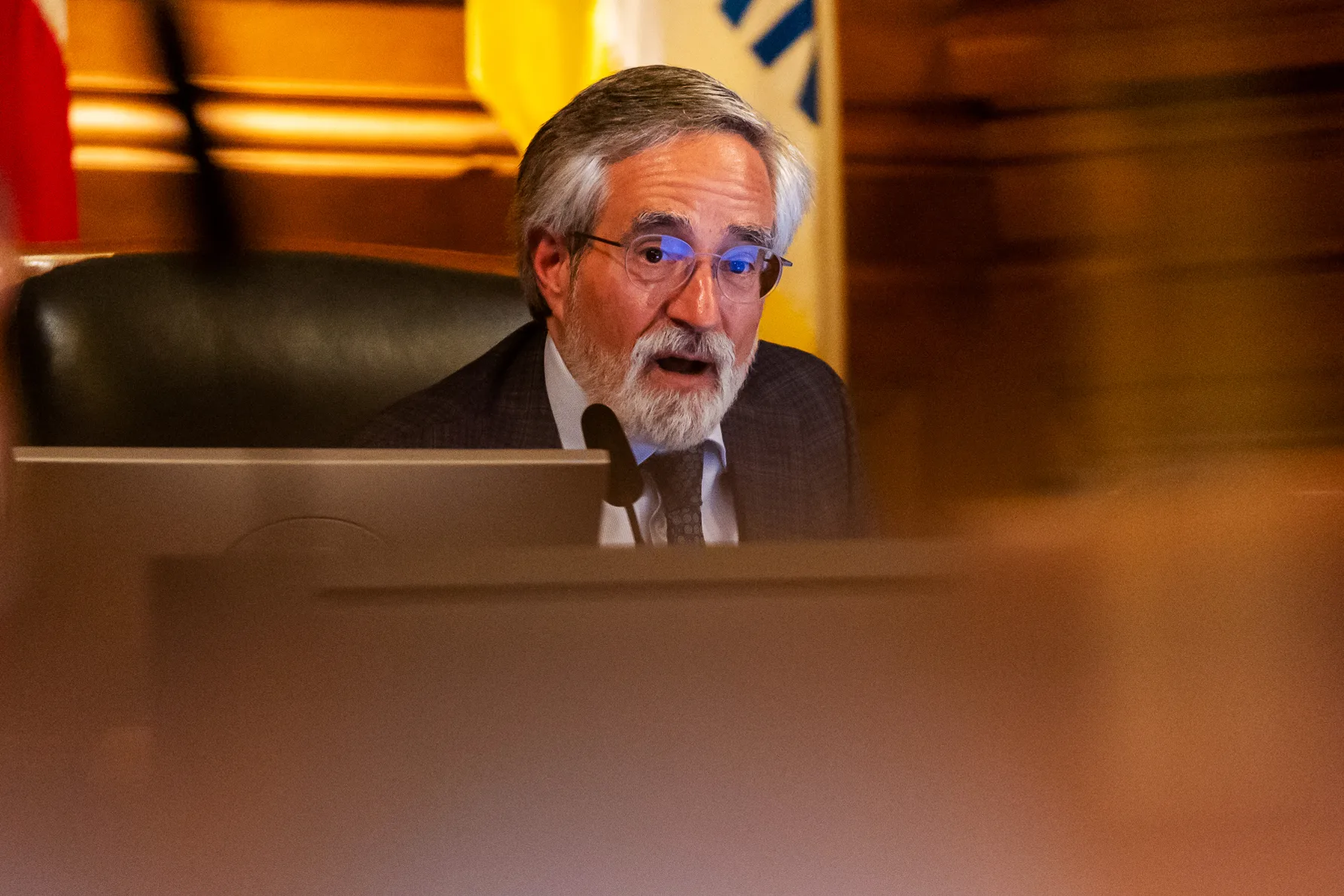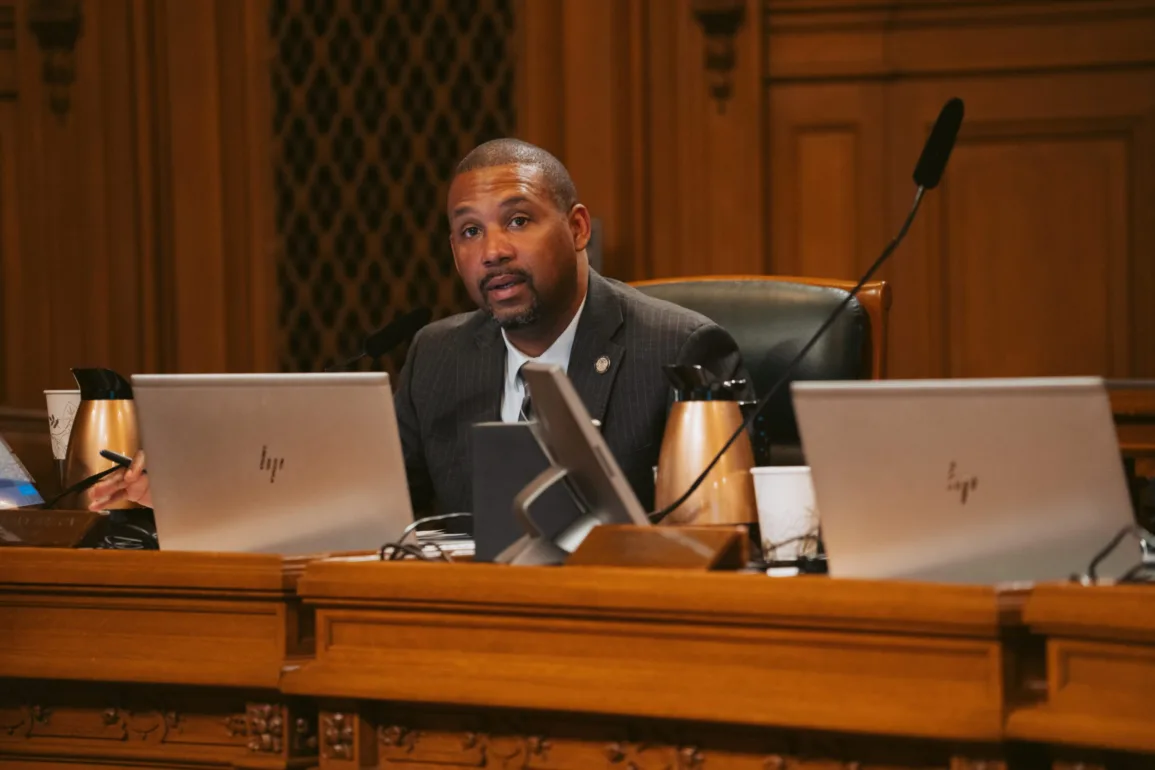The San Francisco Board of Supervisors heard another update on the city’s controversial reparations plan Tuesday, and while no vote was taken, they sketched out beginnings of a road map for putting the more feasible aspect of it into effect.
The draft plan—a product of the Human Rights Commission and accepted by the supervisors in March—includes a broad collection of recommendations providing “material and symbolic redress” to Black San Franciscans deprived of economic opportunities.
When first presented to the board earlier this year, a number of the reparations plan’s recommendations, including a $5 million payment to eligible residents, generated significant national controversy. That and some other recommendations are seen more as a rhetorical anchor in working toward more achievable policies.
The plan is informed by the economic deprivation experienced by Black people in San Francisco—something Board President Aaron Peskin acknowledged in opening the hearing.
“I think that this board is eager to right historical wrongs manifested by the absence of any apology to Black San Franciscans, who have been harmed by the city’s part in redlining, targeted foreclosures, and injustices from the redevelopment era,” Peskin told those present.
Peskin also said he was “looking forward to discussing how each of the members of this body can work individually and together on implementing the so-called low-hanging fruit in the reparations plan and move forward initiatives quickly.”
A First Step Towards Reckoning
Supervisor Shamann Walton, who has shepherded the reparations plan through the board, described the recommendations as “just a first step towards true reckoning,” calling them “not a thing, but a reality that we are making happen right here in San Francisco.”
Those recommendations, ranging from a formal apology for past discrimination to the lump sum payments, housing and business assistance, as well as education and intervention to interrupt the “school-to-prison pipeline” putting Black youth at risk, were outlined by committee chair and former Recreation and Parks commissioner Eric McDonnell, and vice chair Tinisch Hollins, a co-founder of SF Black Wallstreet.
Noting that the median income for Black households in the city is less than a quarter of that of white households, McDonnell called the plan “a once-in-a-generation opportunity to work to close the racial wealth gap” and “account for generations of unpaid debt to San Francisco’s Black communities.”
“We see you every day doing your best, but this is the moment where we’re calling on you to do more than your best,” Hollins told the supervisors. “We are calling on you to be exactly who we know San Francisco is, because right now the media is recording us in a very different way, [as] a place that is unsafe and unwelcoming specifically to Black people.”
Human Rights Commission Director Sheryl Evans Davis presented to supervisors on future implementation plans for the plan, including leasing the Fillmore Heritage Center to Black business operators, creating a fund for other cultural spaces, and engaging with the City Attorney to ensure programs are “legally sound.”
Dream Keeper Initiative


Davis also presented on the Dream Keeper Initiative, which was launched by Mayor London Breed in 2021 with funding diverted from the police budget in the wake of public outrage over the killing of George Floyd.
The initiative provides small business support and affordable housing assistance among other programs, and has helped launch over 200 new businesses and over 20 people buy new homes. Many programs parallel recommendations in the reparations plan, but Davis emphasized that the initiative was focused on improving future outcomes, while the reparations plan is intended to address lasting past harms.
The presentation was followed by close to three hours of public comment which was overwhelmingly in support of the reparations plan.
Former supervisor Rev. Amos Brown alluded to John Steinbeck in his support, telling the board “we are appealing for reparations because for too long it’s been the case in this city that Black folks have been looked at, but their humanity has never been seen.”
Many commenters testified to experiences of discrimination in business and at work, including at city jobs. Cheryl Thornton, a labor activist and health care worker, told supervisors that “Black workers have suffered too long.”
Starting With ‘Low-Hanging Fruit’


After public comment, supervisors then weighed in mainly on what they saw as an emerging “road map” for implementing parts of the reparations plan.
“I think that we need to be serious about stopping the displacement of the Black community from San Francisco,” Supervisor Dean Preston told the board. “We also need to be having the conversation this report raises, which is how do we regrow the Black population of San Francisco. We need to provide affordable homes for Black city workers.”
Preston also pitted the goals of the plan against current public safety policies.
“That means do not write a blank check to SFPD despite the disproportionate use of force and arrest of Black people—numbers that are likely even higher than previously reported, given revelations that some officers have been misrepresenting and misreporting data,” he added.
Supervisor Hillary Ronen, along with Walton, urged further funding for an Office of Reparations, which has been an issue between Breed and the board. Breed had told Walton earlier in the year that she would not support a $50 million appropriation to support the office. Supervisors set aside $4 million for the office during the budget process in June.
“My worry is, we put money in the budget this year to create the Office of Reparations, but we’re hearing that money is not going to be spent,” Ronen said.
Peskin returned to the “low-hanging fruit” narrative, outlining the availability of funds for assisting Black businesses, as well as unused city properties that could be offered to them.
“We need to make those available. We need to be able to fund tenant improvements and, and deal with the capital issues that have to be addressed,” Peskin said. “That is a low-hanging fruit that we should be able to pick.”
Walton then introduced a resolution to accept the finalized reparations plan, which will be voted on at a future meeting.



